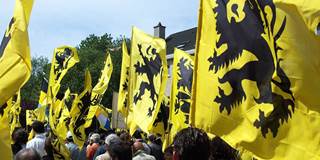For decades, political debate in Europe focused largely on economic institutions and policies. But, with the growing success of appeals to identity and renewed ethnic or religious nationalism, that is changing, leaving officials less able to address the causes of popular frustration.
BARCELONA – The United Kingdom’s recent general election provided a clear example of how the question of national identity is reshaping Europe’s political landscape. The Scottish National Party, embodying a left-wing version of identity politics, wiped out Labour in Scotland, allowing the Conservatives to gain an absolute majority in Parliament. The government of Prime Minister David Cameron – who has focused on British identity, rather than the UK’s common destiny with Europe – will undoubtedly hold a referendum on the UK’s continued membership in the European Union, with unpredictable consequences.
For decades, political debate in Europe focused largely on economic institutions and policies. Conservatives argued for a private sector-driven economy, unfettered markets, low taxes, reduced government spending, and limited public goods. Liberals and social democrats supported a private-ownership economy, markets, European integration, and increased trade, tempered by substantially redistributive taxes and transfers, a strong social safety net, and some public ownership in areas such as infrastructure and finance.
In this bi-polar system, the parties differed on the nuances of economic policy, but broadly agreed on democratic values, the European project, and the need to adapt to and manage globalization, rather than reject it wholesale. But, with the growing success of appeals to identity and renewed ethnic or religious nationalism, that is changing. Are the ghosts of the early and mid-twentieth century returning?

BARCELONA – The United Kingdom’s recent general election provided a clear example of how the question of national identity is reshaping Europe’s political landscape. The Scottish National Party, embodying a left-wing version of identity politics, wiped out Labour in Scotland, allowing the Conservatives to gain an absolute majority in Parliament. The government of Prime Minister David Cameron – who has focused on British identity, rather than the UK’s common destiny with Europe – will undoubtedly hold a referendum on the UK’s continued membership in the European Union, with unpredictable consequences.
For decades, political debate in Europe focused largely on economic institutions and policies. Conservatives argued for a private sector-driven economy, unfettered markets, low taxes, reduced government spending, and limited public goods. Liberals and social democrats supported a private-ownership economy, markets, European integration, and increased trade, tempered by substantially redistributive taxes and transfers, a strong social safety net, and some public ownership in areas such as infrastructure and finance.
In this bi-polar system, the parties differed on the nuances of economic policy, but broadly agreed on democratic values, the European project, and the need to adapt to and manage globalization, rather than reject it wholesale. But, with the growing success of appeals to identity and renewed ethnic or religious nationalism, that is changing. Are the ghosts of the early and mid-twentieth century returning?